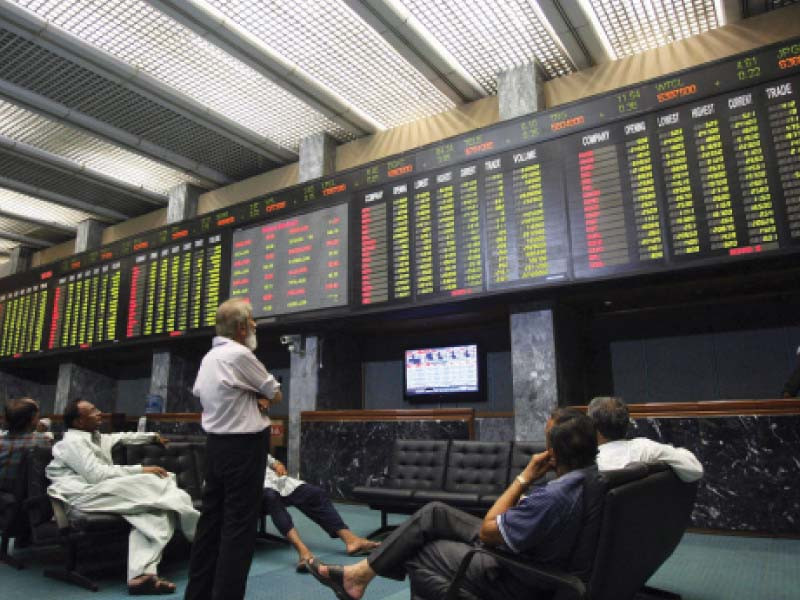
Pakistan Stock Exchange (PSX), which had won the title of Asia’s best performing stock market in August 2020, took a U-turn and became the third worst performing market in the region amid the boiling political temperature and melting economy.
Investors witnessed the wipeout of 16.27% (or Rs1.35 trillion) of investment at the PSX, as market capitalisation (the total value of all listed companies) slumped to a multiyear low at Rs6.95 trillion on Thursday, compared to the peak of Rs8.29 trillion in June 2021.
The petroleum refinery was the worst-hit sector in terms of losing market capitalisation. The sector’s capitalisation halved to Rs66 billion in March, compared to Rs146.56 billion at the end of June 2021.
The cement sector lost 24% of market capitalisation while automobile assemblers’ capitalisation went down 13% during Jul-Mar FY22, according to the Pakistan Economic Survey 2021-22.
PSX became the third worst performing market in Asia after the benchmark KSE-100 index dropped 5.1% (or 2,427 points) in the first nine months (Jul-Mar) of the outgoing fiscal year and closed at 44,929 points on March 31, according to the survey.
The latest data suggests that the PSX has become the second worst performing market in the region after Sri Lanka in the entire current fiscal year (Jul-Jun FY22), it has been learnt. PSX has dived almost 31% in dollar terms in the current fiscal year to date, according to Arif Habib Limited (AHL).
“Pakistan stock market’s performance has posted a boom-and-bust situation during FY2022 (Jul-Mar) due to geopolitical tension, especially Russia-Ukraine conflict, and domestic political uncertainty,” the survey said.
The latest available data has painted a further worsening picture of the equity market. The benchmark index has lost 13.25% (or 6,376 points) over the past one year and closed near a two-year low at 41,736 points on Thursday.
On Thursday alone, the KSE-100 index rose 0.44% (or 183 points) on a day-to-day basis and closed at 41,736 points, according to the PSX data.
Read Despite headwinds, PSX sees ray of hope
Arif Habib Limited (AHL) Head of Research Tahir Abbas said Pakistan’s economy started showing signs of overheating in September 2021 that worsened after global commodity prices abnormally spiked in the wake of the reopening of the world after the Covid-19 lockdown.
“Later (since February 2022), the Russia-Ukraine conflict exacerbated the economic challenges, as the super cycle of commodity prices widened the country’s current account deficit (CAD) and worsened the balance of payments crisis,” he said.
Besides, a prolonged delay in the resumption of International Monetary Fund (IMF)’s S6 billion loan programme, political instability, change of government through a no-confidence vote and high petroleum product prices added to the gloom and sent negative signals to the stock exchange, he said.
Irrespective of the good or bad things happening, foreign investors have continued to exit the PSX for the fifth consecutive year in 2022.
Foreign investors have pulled out a net $1.61 billion from the equity market since July 1, 2017, according to the National Clearing Company of Pakistan Limited (NCCPL).
The high volatility in the rupee-dollar parity has remained the key reason for the exit of foreigners from the domestic bourse, as sharp depreciation of the rupee adversely impacted their investment.
In addition to this, the downgrading of Pakistan by the MSCI from the Emerging Market Index to the Frontier Market Index with effect from December 1, 2021 sparked selling pressure at the bourse.
Before hitting a two-year low recently, the PSX’s benchmark KSE-100 index “closed at its highest point (for fiscal year 2022) at 48,112 points on August 23, 2021,” said the Economic Survey.
“The turnover of shares reached its peak in September 2021, indicating that investors were actively investing in the market. However, the market activity slowed down in February and March 2022 due to the geopolitical and domestic political uncertainty.”
“Meezan Bank and Mari Petroleum share prices have a positive growth. Fall in the share price of Pak Tobacco is partly explained by the negative growth of 28% in the tobacco industry. Share price of Nestle has dropped as food and personal care products’ companies posted a modest growth of 1.2%,” the Economic Survey said.
The major development of this year in the equity market is the initial public offering (IPO). During July-March FY22, five companies issued shares through IPOs on the main board of PSX, while two companies were listed on the newly introduced Growth Enterprise Market (GEM) Board, it said.
Published in The Express Tribune, June 10th, 2022.
Like Business on Facebook, follow @TribuneBiz on Twitter to stay informed and join in the conversation.

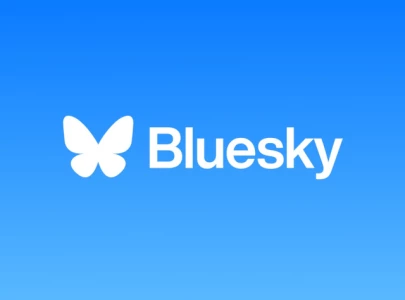


1732105641-0/BeFunky-collage-(78)1732105641-0-165x106.webp)


1732084432-0/Untitled-design-(63)1732084432-0-270x192.webp)



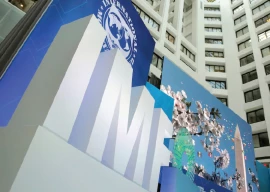


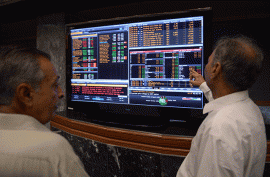
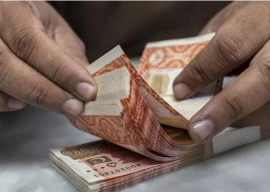






COMMENTS
Comments are moderated and generally will be posted if they are on-topic and not abusive.
For more information, please see our Comments FAQ